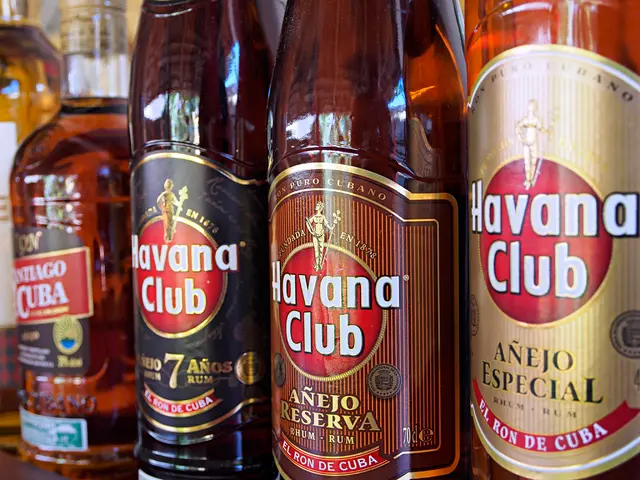Coffee's Impact on Colorectal and Bowel Cancer: A Surprising Ally?
Does Consuming Coffee Potentially Reduce Chances of Colon Cancer?
Bag yourself a cup of joe and take solace in the surprising notion that coffee might just be your buddy in the fight against colorectal and bowel cancer.
Delve into findings published in the International Journal of Cancer, unearthing fascinating evidence indicating that mainlining an impressive four cups a day could lower your risk of recurrent colorectal cancer by a whopping 32%. The study, involving over 1,700 participants in various stages of this cancer, underscores the potential contributions of this popular brew.
Curious about how coffee works its magic? Let's get to the meat of it:
- Minimizing Oxidative Stress: Coffee's antioxidants take a mighty stance against destructive free radicals, hence reducing oxidative stress.
- Helping Your Gut Buds: We all know how important gut health is, and coffee lends a friendly hand—aiding the beneficial bacteria to flourish in your gut.
- Taking a Stand Against Tumors: Oh, the irony—the very substance that keeps many of us awake is also said to thwart tumor growth. Neat, ain't it?
- Protection Against Nonalcoholic Fatty Liver Disease: Did you know that coffee's your liver's best mate in avoiding nonalcoholic fatty liver disease? Ain't that sweet?
While the medical world is abuzz about coffee's cancer-busting potential, one finding stands out: coffee drinkers seem to have a lesser chance of developing colorectal cancer compared to those who abstain.
But wait, there's more to the coffee story!
The distinction between caffeinated and decaf is fascinating. It seems our bodies metabolize these two brews differently.
- Caffeinated Coffee: Associated with a slightly higher risk of rectal cancer, caffeinated coffee might nudge the needle. But take heart, as there's no increased risk of colon cancer!
- Decaffeinated Coffee: Being the sober sibling, decaf retains many of coffee's non-caffeine components, offering significant antioxidant content without the stimulatory effects of caffeine, making it a more sip-savvy choice for those sensitive to caffeine's buzz.
When it comes to nipping colorectal cancer in the bud, aim for a balanced approach:
- Exercise Equals Success: Getting physical ain't just a bunch of sweat—it helps reduce your risk of colorectal cancer.
- Fuel Up on Nutrition: Embrace a well-rounded diet and say hello to lower cancer risks.
- Quit Tobacco and Steer Clear of Sauce: Dropping tobacco and nixing booze? You're well on your way to better health!
- The study published in the International Journal of Cancer suggests that drinking four cups of coffee daily could reduce the risk of recurrent colorectal cancer by 32%.
- Coffee's antioxidants help minimize oxidative stress, aiding in the fight against various medical conditions like cancer.
- While caffeinated coffee might show a slight increase in the risk of rectal cancer, decaffeinated coffee offers significant antioxidant content without the stimulatory effects of caffeine, making it a better choice for those sensitive to caffeine.
- In the battle against colorectal cancer, maintaining a balanced approach involving regular exercise, a nutritious diet, and avoiding tobacco and excessive alcohol consumption plays a crucial role in health and wellness.








